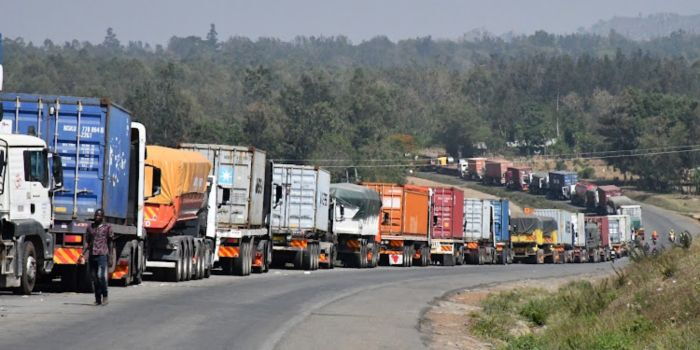The government of South Sudan has directed all payments of trade permits for goods entering the country to be paid within the country’s borders, which is set to affect Kenyan businessmen.
In a notice in the Daily Nation on Thursday, November 28, Trade Minister Amb. Joseph Moun Majak stated that with “immediate effect, all payments related to the trade accreditation permit shall be made strictly in South Sudan territory.”
“The accreditation permit is now mandatory for all goods exported to the Republic of South Sudan,” read part of the notice.
The Trade Accreditation Permit is intended to verify the authenticity of products being imported into the markets. This is set to affect the trade between Kenya and South Sudan, which stood at Ksh29 billion in 2023, representing 3.16 per cent of Kenya’s total exports.
President William Ruto with South Sudan president Salva Kiir Mayardit in Juba on Wednesday, November 6, 2024. PHOTO/ William Ruto.
“This accreditation permit is a policy measure instituted by our government to protect consumers and enhance the overall standard of living conditions for our citizens, who heavily rely on imported goods,” stated Majak earlier this month.
“Also serves as a critical tool in regulating and verifying the authenticity and quality of products entering our market,” he added.
Key exported products from Kenya include cement, pharmaceutical items, food products, and household goods, all of which will be subject to the new policy.
According to the Minister, this measure is expected to significantly contribute to increasing the revenue of the South Sudan Revenue Authority.
The new policy adds to a raft of changes that have slowed business between the two states in the last year.
In August, South Sudan initiated new policy measures requiring that all imports and exports from the country be affixed with special seals provided by the government.
The introduction of this directive follows a five-month period during which Kenyan clearing and forwarding agents sought legal action to halt South Sudanese authorities from enforcing a second cargo tracking seal.
Earlier in March, the South Sudan Revenue Authority (SSRA) implemented its own tracking tags alongside those from the Regional Electronic Cargo Tracking (RECT), charging $350 for each consignment. This move triggered widespread protests from industry stakeholders, compelling the Kenyan agents to take the matter to court.
Despite these objections, the High Court in Mombasa ruled against the suspension of the SSRA’s order, allowing the new tracking measures to proceed.
Shipping trucks along the Nimule Juba Highway in South Sudan
Daily Nation


